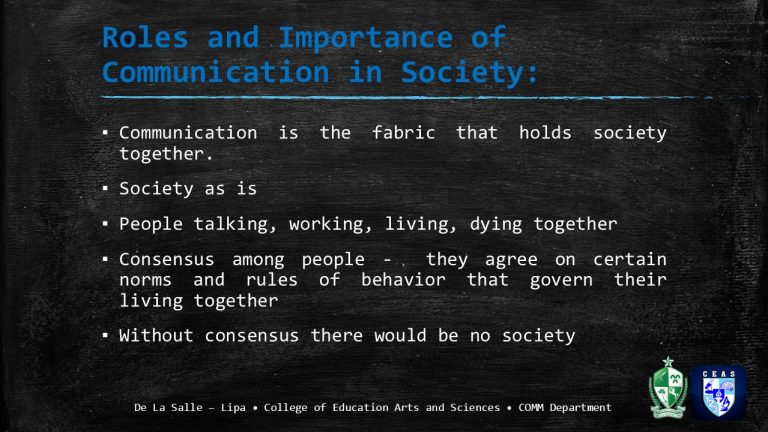How to Build My Self Esteem in Public Speaking?
To build your self-esteem in public speaking, practice regularly and seek constructive feedback.
Understanding Self Esteem
To build self-esteem in public speaking, focus on preparing thoroughly, practicing regularly, and embracing positive self-talk. Visualize success and remember that everyone makes mistakes. Embrace constructive feedback and continue to challenge yourself to grow and improve.
Before we delve into how to build self-esteem in public speaking, let’s first understand what self-esteem is all about. Self-esteem refers to the overall opinion you have of yourself. It’s how you perceive your worth, capabilities, and value as an individual.
What Is Self Esteem?
Self-esteem is the foundation of our self-image. It encompasses our beliefs about our abilities, accomplishments, and worthiness. When it comes to public speaking, having a healthy level of self-esteem is crucial for our performance and self-confidence.
The Importance Of Self Esteem In Public Speaking
Self-esteem plays a vital role in public speaking. It affects how we present ourselves, our ability to connect with the audience, and our overall delivery. Here’s why self-esteem is so important in this context:
- Confidence: Self-esteem boosts our confidence levels, allowing us to speak with conviction and enthusiasm in front of an audience.
- Resilience: With a healthy self-esteem, we can handle any setbacks or mistakes during a speech more effectively, bouncing back stronger.
- Authenticity: Embracing our self-worth helps us present our ideas and stories authentically, capturing the attention and interest of our listeners.
- Engagement: When we believe in our abilities, we exude a type of energy and charisma that keeps the audience engaged and receptive to our message.
- Overcoming fear: Public speaking often triggers fear and anxiety. However, with a strong sense of self-esteem, we can face these fears head-on and conquer them.
In conclusion, understanding self-esteem is the first step towards building and enhancing it in the realm of public speaking. With a solid foundation of self-worth, we can become confident, authentic, and engaging speakers, leaving a lasting impact on our audiences.
Identifying Your Self Esteem Challenges
Build your self-esteem in public speaking by identifying and addressing your specific challenges. By understanding what holds you back and working on those areas, you can gain confidence and improve your public speaking skills. Invest in self-reflection and practice to build your self-esteem and overcome any obstacles in public speaking.
Before we can effectively build our self esteem in public speaking, it’s crucial to first identify the specific challenges we face. Recognizing and understanding these challenges is the first step towards conquering them. Let’s take a closer look at some common self esteem challenges that many individuals encounter in public speaking.
Recognizing Common Self Esteem Challenges
When it comes to public speaking, we may face various self esteem challenges that can hinder our confidence and performance. It’s important to acknowledge these challenges so that we can address them head-on.
- Fear of judgment: Many individuals experience a deep-seated fear of being judged by others when speaking in public. This fear can undermine our self esteem and prevent us from expressing ourselves effectively.
- Comparing ourselves to others: We often fall into the trap of comparing ourselves to other speakers who we perceive as more confident or skilled. This comparison can negatively impact our self esteem and make us doubt our own abilities.
- Past failures or negative experiences: Previous negative experiences such as forgetting lines, stumbling over words, or receiving criticism can leave a lasting impact on our self esteem. These experiences might make us doubt our capabilities and hinder future performances.
- Perfectionism: Striving for perfection in our public speaking can be a double-edged sword. While it demonstrates our dedication, it can also create high expectations that are difficult to meet. Falling short of perfection can lead to a blow to our self esteem.
How Self Esteem Affects Public Speaking
Understanding how self esteem impacts public speaking is crucial for focusing on its improvement. Let’s explore the ways in which self esteem influences our performance:
- Confidence: Our level of self esteem directly affects our confidence when speaking in public. With low self esteem, we may lack the belief in our abilities, leading to nervousness and a lack of assertiveness.
- Body language and non-verbal cues: Self esteem can significantly impact our body language and non-verbal cues during public speaking. Low self esteem may result in closed-off body language, lack of eye contact, and inability to connect with the audience.
- Ability to handle setbacks: A strong self esteem is essential in handling setbacks and overcoming obstacles during a public speaking engagement. High self esteem allows us to learn from mistakes and push forward, while low self esteem may lead to self-doubt and retreat.
- Authenticity and connection: Public speaking becomes more effective when we can authentically connect with our audience. Self esteem influences our ability to be genuine and connect on a deeper level, ultimately enhancing the impact of our message.
By recognizing common self esteem challenges and understanding how self esteem affects our public speaking, we can address these issues head-on and build a solid foundation of confidence and self-assuredness. In the next section, we will explore actionable strategies to boost our self esteem in public speaking.
Building Your Self Esteem
Building self-esteem in public speaking plays a crucial role in boosting your confidence and delivering impactful presentations. By setting realistic goals, practicing positive self-talk, and seeking feedback, you can gradually develop your self-esteem. These strategies will help you overcome your fears and become a more confident public speaker.
Setting Realistic Goals
Setting realistic goals is a fundamental step towards building self-esteem. Start by identifying specific objectives that you want to achieve in your public speaking journey. These goals should be attainable, measurable, and relevant to your growth as a speaker. By breaking down your larger goals into smaller, more manageable tasks, you can track your progress and feel a sense of accomplishment along the way.
Practicing Positive Self-talk
Positive self-talk is a powerful technique that can significantly improve your self-esteem. Instead of focusing on your weaknesses, concentrate on your strengths and previous successes as a speaker. Remind yourself of the times you delivered excellent presentations and received positive feedback. Use affirmations and positive statements to reinforce your belief in your own abilities. By replacing negative thoughts with empowering affirmations, you can cultivate a confident mindset in public speaking.
Seeking Feedback And Improvement
Feedback is essential for growth and development. Actively seek feedback from trusted sources, such as mentors, colleagues, or even audience members. Ask for specific areas to improve upon, whether it is your body language, voice projection, or content organization. Embrace constructive criticism as an opportunity to learn and enhance your skills. Remember, seeking feedback is not about seeking validation but rather a chance to continually refine your techniques and become a better speaker.
Building self-esteem in public speaking takes time and practice. By setting realistic goals, practicing positive self-talk, and seeking feedback, you can gradually enhance your confidence and become a powerful communicator. Embrace the journey and keep pushing yourself to new heights.
Overcoming Fear And Anxiety
Public speaking can be an intimidating experience for many individuals, causing fear and anxiety to creep in. However, it is important to remember that you are not alone in feeling this way. The good news is that with practice and the right strategies, you can build up your self-esteem and overcome the fear and anxiety associated with public speaking. In this post, we will discuss key techniques to help you manage your fear and anxiety, including understanding the root causes, various techniques to manage fear, and visualization and relaxation exercises.
Understanding The Root Causes Of Fear
Fear and anxiety often stem from deep-rooted beliefs and negative thoughts associated with public speaking. It is crucial to identify and understand these root causes to effectively overcome them. Some common reasons for fear may include:
- Past negative experiences or traumatic events
- Concerns about judgment or criticism from others
- Lack of self-confidence or self-doubt
- Fear of making mistakes or forgetting key points
By acknowledging and confronting these underlying fears, you can start to challenge and change your mindset, paving the way for improved self-esteem in public speaking.
Techniques To Manage Fear And Anxiety
Once you have a clear understanding of the root causes of your fear, it’s time to take practical steps towards managing it. Here are some effective techniques you can use:
- Prepare and practice: The more you prepare and practice your speech, the more confident and comfortable you will feel on stage.
- Breathing exercises: Deep breathing can help calm your nerves and alleviate anxiety. Take slow, deep breaths to relax your body and mind before and during your speech.
- Positive self-talk: Replace negative thoughts with positive affirmations. Remind yourself of your strengths, capabilities, and past successes to boost your confidence.
- Seek support: Surround yourself with supportive individuals who can provide encouragement and constructive feedback. Join public speaking clubs or workshops where you can practice speaking in a safe and supportive environment.
Visualization And Relaxation Exercises
Visualization and relaxation exercises can be powerful tools in reducing anxiety and boosting your self-esteem in public speaking. Consider incorporating the following exercises into your preparation:
| Exercise | Description |
| Visualize success | Close your eyes and imagine yourself delivering a confident and successful speech. Visualize positive reactions from the audience and the feeling of accomplishment. |
| Progressive muscle relaxation | Tense and relax each muscle group in your body, starting from your toes and working your way up to your head. This exercise helps release tension and promotes a sense of calmness. |
| Guided imagery | Listen to guided imagery audio recordings that take you to a peaceful and calm environment. Allow your mind to be transported to a place where you feel safe and confident. |
By regularly practicing visualization and relaxation exercises, you can condition your mind and body to stay calm and composed during public speaking engagements.
Gaining Confidence In Public Speaking
Public speaking can be a daunting task for many individuals, causing anxiety and a lack of self-esteem. However, with the right techniques and consistent practice, it is possible to build confidence in public speaking. This article will outline some practical strategies to help you develop effective communication skills, prepare and rehearse your speech, and navigate challenging situations, ultimately boosting your self-esteem in public speaking.
Developing Effective Communication Skills
Effective communication skills play a crucial role in boosting your self-esteem and confidence in public speaking. Here are some helpful strategies:
- 1. Be clear and concise: Focus on getting your message across using simple and straightforward language.
- 2. Use confident body language: Stand tall, maintain eye contact, and use hand gestures to convey confidence and engagement.
- 3. Speak with conviction: Deliver your speech with passion and conviction, emphasizing important points and using appropriate intonation.
- 4. Practice active listening: Pay close attention to your audience’s reactions and respond accordingly, making them feel heard and appreciated.
Preparing And Rehearsing Your Speech
Proper preparation and rehearsal are essential for successfully gaining confidence in public speaking. Consider the following tips:
- 1. Research your topic: Gather information and become an expert on your subject matter to feel more confident and knowledgeable.
- 2. Organize your speech: Create a clear outline with an introduction, body, and conclusion, ensuring smooth transitions between key points.
- 3. Practice in front of a mirror: Observe your body language, facial expressions, and gestures to identify areas for improvement.
- 4. Record and review: Use a recording device to capture your practice sessions and evaluate your delivery, identifying areas where adjustments can be made.
- 5. Seek feedback: Ask trusted friends or colleagues to provide constructive criticism on your speech, enabling you to refine your delivery and boost your confidence.
Navigating Challenging Situations
Challenging situations such as unexpected questions or technical difficulties may arise during public speaking. Here are some tips to help you navigate these situations and maintain your confidence:
- 1. Stay composed: Take a deep breath and remain calm and composed, giving yourself a moment to collect your thoughts before responding.
- 2. Use positive self-talk: Remind yourself of your preparation and expertise, affirming your ability to handle any challenges that come your way.
- 3. Pause and reflect: If unsure about an answer, it’s better to pause and gather your thoughts than to provide inaccurate information.
- 4. Embrace imperfections: Remember that everyone makes mistakes, and it’s okay to stumble or fumble momentarily. Maintain a positive mindset and carry on with confidence.
By developing effective communication skills, preparing and rehearsing your speech thoroughly, and knowing how to navigate challenging situations, you can build your self-esteem and confidence in public speaking. Remember, it takes time and practice, so be patient and consistent in your efforts. With each successful speaking engagement, your confidence will continue to grow, allowing you to shine as a public speaker.
Frequently Asked Questions For How Do I Build My Self Esteem In Public Speaking?
How Can I Improve My Self-esteem In Public Speaking?
The key to building self-esteem in public speaking is practice, preparation, positive self-talk, and focusing on your strengths.
What Are Some Tips For Boosting Self-confidence In Public Speaking?
To boost self-confidence, visualize success, maintain a calm body posture, engage with the audience, and focus on delivering valuable content.
How Can I Overcome Stage Fright When Speaking In Public?
To overcome stage fright, deep breathing exercises, positive affirmations, gradually exposing yourself to larger audiences, and seeking professional help can be effective strategies.
Conclusion
In a nutshell, building self-esteem in public speaking takes time and practice. By acknowledging your fears, identifying and challenging negative thoughts, and taking small steps to expose yourself to speaking opportunities, you can gradually boost your confidence. Remember to focus on your strengths, be kind to yourself, and seek support from others.
With determination and resilience, you can develop the self-assurance needed to excel in public speaking.





